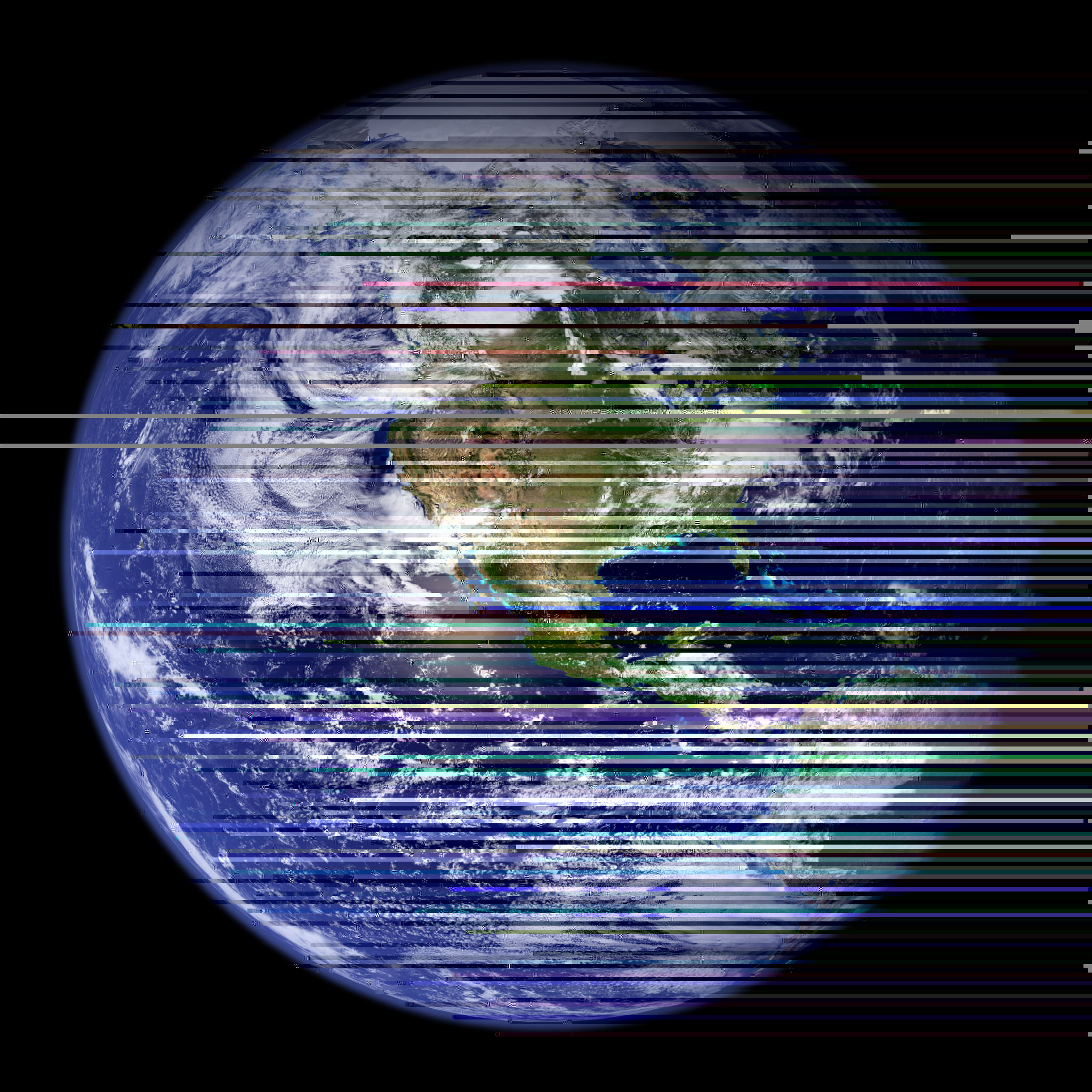 G̷̜̏l̴̳̺͐̀ì̷̩͉t̴̹̯̚c̷̑ͅḩ̵̀͜͠
G̷̜̏l̴̳̺͐̀ì̷̩͉t̴̹̯̚c̷̑ͅḩ̵̀͜͠
 G̷̜̏l̴̳̺͐̀ì̷̩͉t̴̹̯̚c̷̑ͅḩ̵̀͜͠
G̷̜̏l̴̳̺͐̀ì̷̩͉t̴̹̯̚c̷̑ͅḩ̵̀͜͠
I chose to apply glitch to the notion of natural beauty and the continued disruption of it.
The first image I glitched was of the earth. I glitched it by first deleting segments of the code. Then, I peppered in the word ‘glitch’ throughout the code. Finally I added in several paragraphs of Greta Thunberg’s speech about climate change at the UN Summit. The result was these multicolored bands spanning the length of the image. This was a much cleaner glitch than the other images I had worked with and I liked it because it was so simple but very effective and pleasing to look at. The reason I glitched this image was because we talk about how beautiful the earth is, but look how we destroy it. Nature is held in such high regard- the seven wonders of the world, everyone wants to travel, nature scenes as our computer backgrounds- yet we are destroying the earth. Everyone wants to travel but then tourists destroy these beautiful places with littering and trash. Even the places that aren't landmarks like public parks become disgusting.

The next image I glitched was of singer Madison Beer to demonstrate the destruction of natural beauty through social media. I tried deleting single letters from the end of pieces of code, as well as adding the words ‘filter’ and ‘glitch’ throughout. Celebrities like Madison Beer are constantly insisting that they have had no plastic surgery, but it's clear that they have. Overediting, surgery, and filters, all promoting people that are ‘naturally’ beautiful when it is in fact quite the opposite. Pictures like these “[trigger] the visual economy of the Internet cam girl, digital-diva-meets- fairytale-vixen, posing for the camera’s anxious gaze”, that Russel discusses, the white, cisgender female form that is so sought after online (77). These photos feed into this standard and uphold it.

The final image I glitched was of the top google results for ‘no makeup natural look’. As with the other two images, I deleted pieces of code and added the word glitch throughout. I also added in the words ‘clean’ and ‘no makeup’. The woman in the image is clearly wearing lots of makeup, with her look taking at least 7 different products to achieve, and doesn’t look natural at all. Russell describes how she was “empowered via creating new selves, slipping in and out of digital skins” and this is what this construct can achieve, created an idealized version of yourself that you present as the real you (13).

The pursuit of naturality is in fact what destroys it. Nothing positive comes from this- the glitch is the perceived perfection, the AFK reality is the disturbance. As much as glitch can be liberatory, can be a celebration of differences and “a consensual diaspora toward multiplicity that arms us as tools, carries us as devices, sustains us as technology, while urging us to persist, survive, stay alive”, it can be constrictive by the same hand (104). Does it matter if glitch provides us with the many bodies Russell celebrates if so many of those bodies are nothing but lies? Perhaps the freedom of glitch is nothing but a façade.